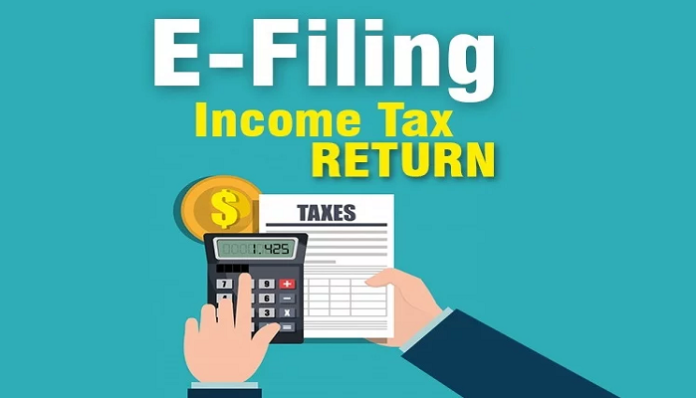
ITR Filing 2023: The last date for filing Income Tax Return (ITR) is 31 July 2023. Individuals who miss the deadline to file ITR will have to pay the penalty while filing belated ITR. However, there are some individuals who will be able to file their ITR (Income Tax Return) without paying penalty even after the ITR filing deadline is over.
The last date for filing Income Tax Return (ITR) for the financial year 2022-23 (Assessment Year 2023-24) is 31 July 2023. Individuals who miss the deadline to file ITR will have to pay the penalty while filing belated ITR. However, there are some individuals who will be able to file their ITR (Income Tax Return) without paying penalty even after the ITR filing deadline is over. Let us take a look at who will not have to pay the penalty for missing the ITR filing deadline. As per the Income Tax Law, not everyone is required to pay late fee for filing ITR after the deadline. If a person whose gross total income does not exceed the basic exemption limit and files ITR late, he will not be liable to pay penalty for late filing.
Those who file late return also get exemption under section 234F of income tax
According to Abhishek Soni, CEO of income tax return filing website taxtowin.in, the Income Tax Department said in a statement, “If the gross total income does not exceed the basic exemption limit, ITR filed after the deadline will not attract late fee as mentioned under section 234F.” Said, ‘Gross total income referred to in section 139(1) means total income before taking into account the deduction under sections 80C to 80U under the Act.
The basic tax exemption applicable to an individual depends on the tax regime chosen.
As per the current tax laws, the basic tax exemption limit applicable to an individual depends on the tax regime chosen by him. If a person opts for the new tax regime, the basic exemption limit will be Rs 2.5 lakh, irrespective of his age. However, if a person opts for the old tax regime, the basic exemption limit depends on the age of the person.
At present, the basic exemption limit for resident individuals below the age of 60 years is Rs 2.5 lakh. For senior citizens of 60 years and above but less than 80 years of age, income up to Rs 3 lakh is exempted from tax. For very senior citizens (above 80 years of age), the basic exemption limit is up to Rs 5 lakh. Note that Budget 2023 has announced new income tax slabs under the new tax regime. However, the new income tax slabs under the new tax regime will be applicable for income earned for the current FY 2023-24 (i.e. between April 1, 2023 and March 31, 2024) and FY 2023-24 (Assessment Year 2024-25) for the next year while filing ITR.
Exceptions to the above rule
However, there are two exceptions to the above rule. The first exception to the rule is mandatory filing of ITR for certain classes of individuals even if their gross total income does not exceed the basic exemption limit. Shalini Jain, Tax Partner, People Advisory Services, EY India, said, “If a person satisfies any of the conditions mentioned in the seventh proviso to section 139(1), he shall mandatorily file ITR for the financial year 2022-23, failing which a charge under section 234F will be levied.”
The following persons come under the seventh proviso to section 139(1):
- Individuals who have deposited an amount or aggregate amount exceeding Rs.1 crore in one or more current accounts with their bank or co-operative bank.
- Who has incurred an amount or aggregate amount exceeding Rs 2 lakh for himself or any other person for travel abroad.
- Persons who have incurred an amount or aggregate amount exceeding Rs.1 lakh for consumption of electricity.
- Individuals who fall under any one of the above reasons.
- If you fall under any of the conditions mentioned above then you will mandatorily have to file ITR. In such a situation, you should ensure that you file your tax return before the deadline or else you will have to pay late fee even if your gross total income is below the taxable limit.
Penalty will have to be paid even if there is income from foreign property
Another exception is that if you hold foreign assets such as stocks in a foreign company and you earn income from that foreign asset, you will have to file ITR prematurely, failing which you will be liable to pay a penalty, even if your total income is less than the taxable limit.





